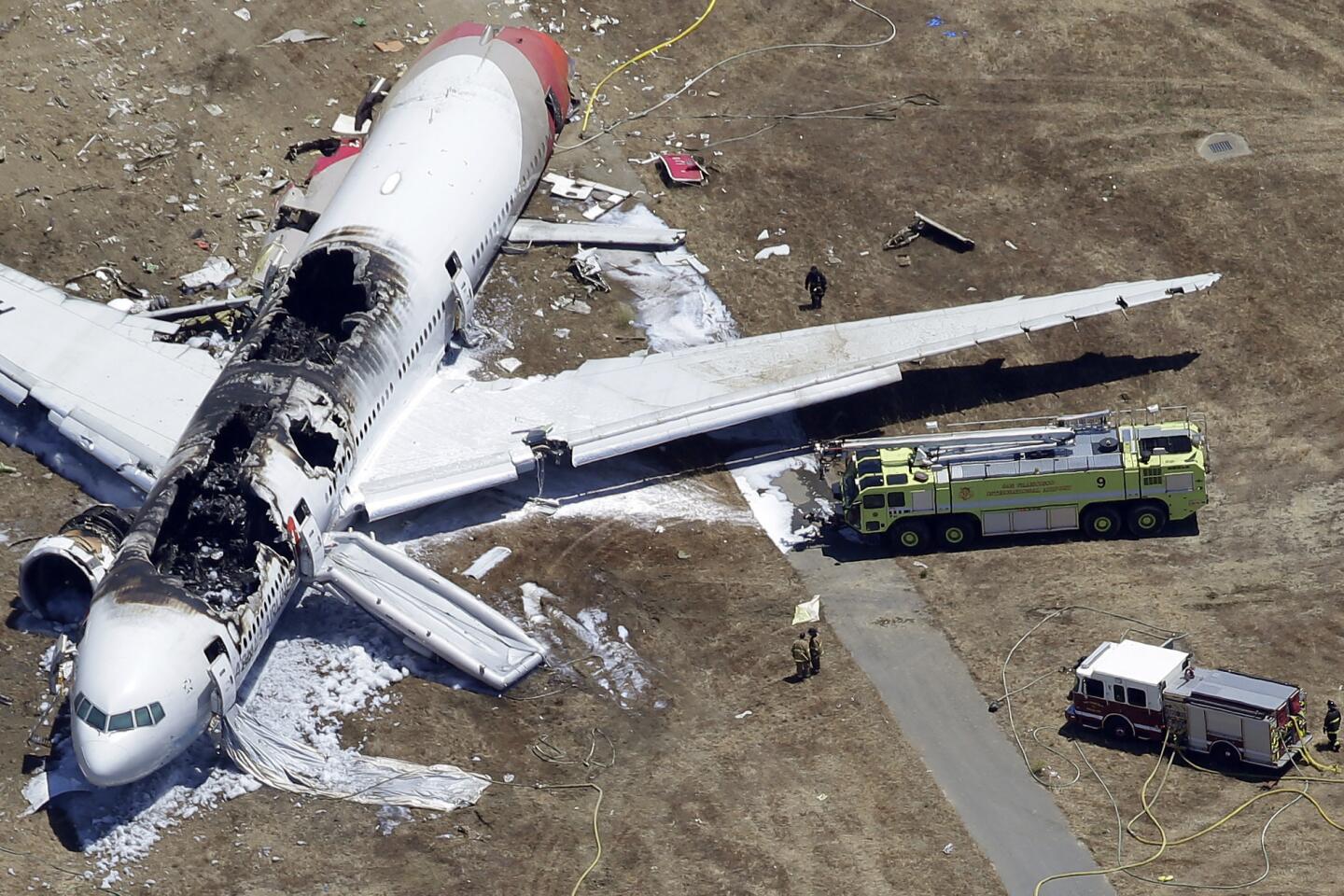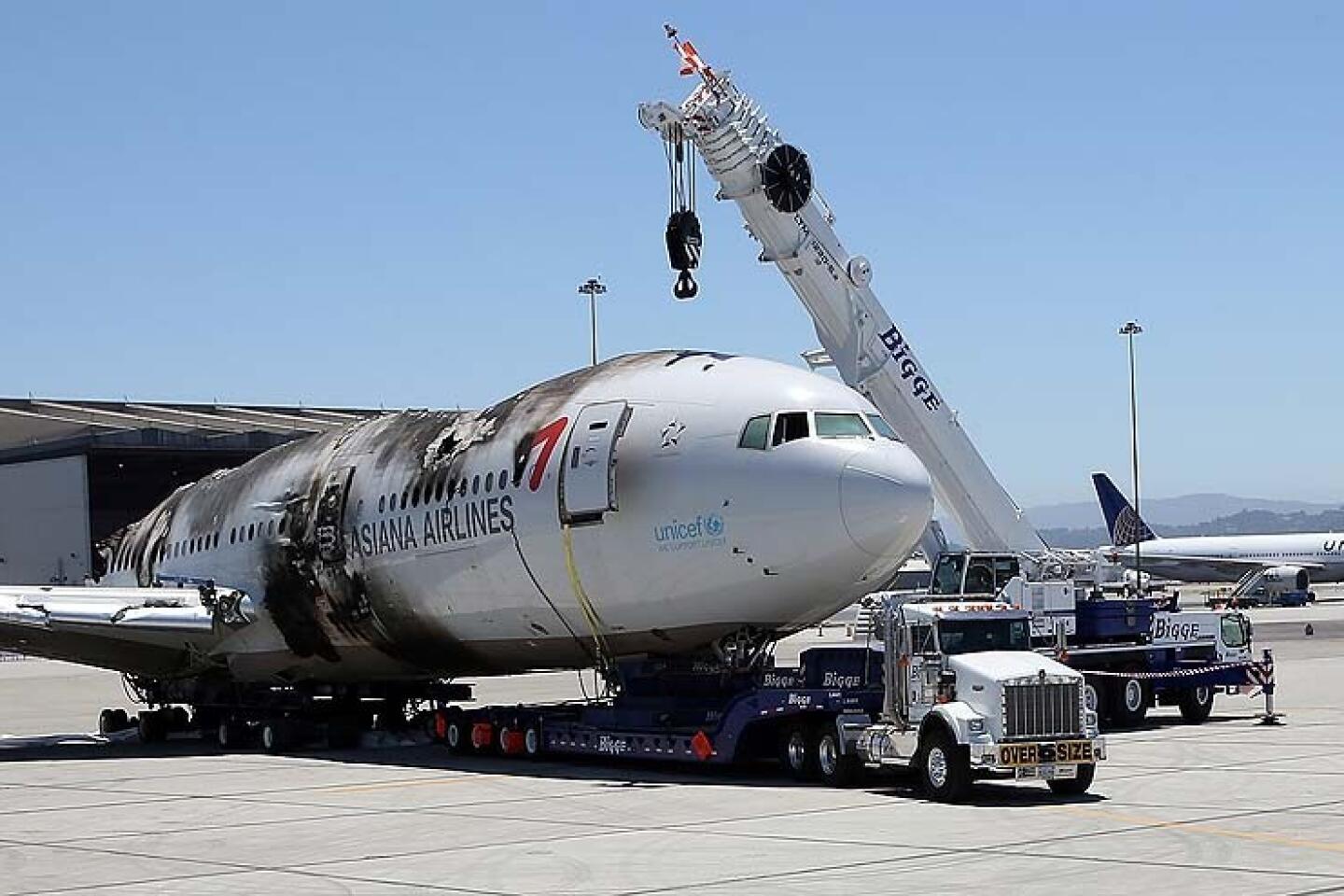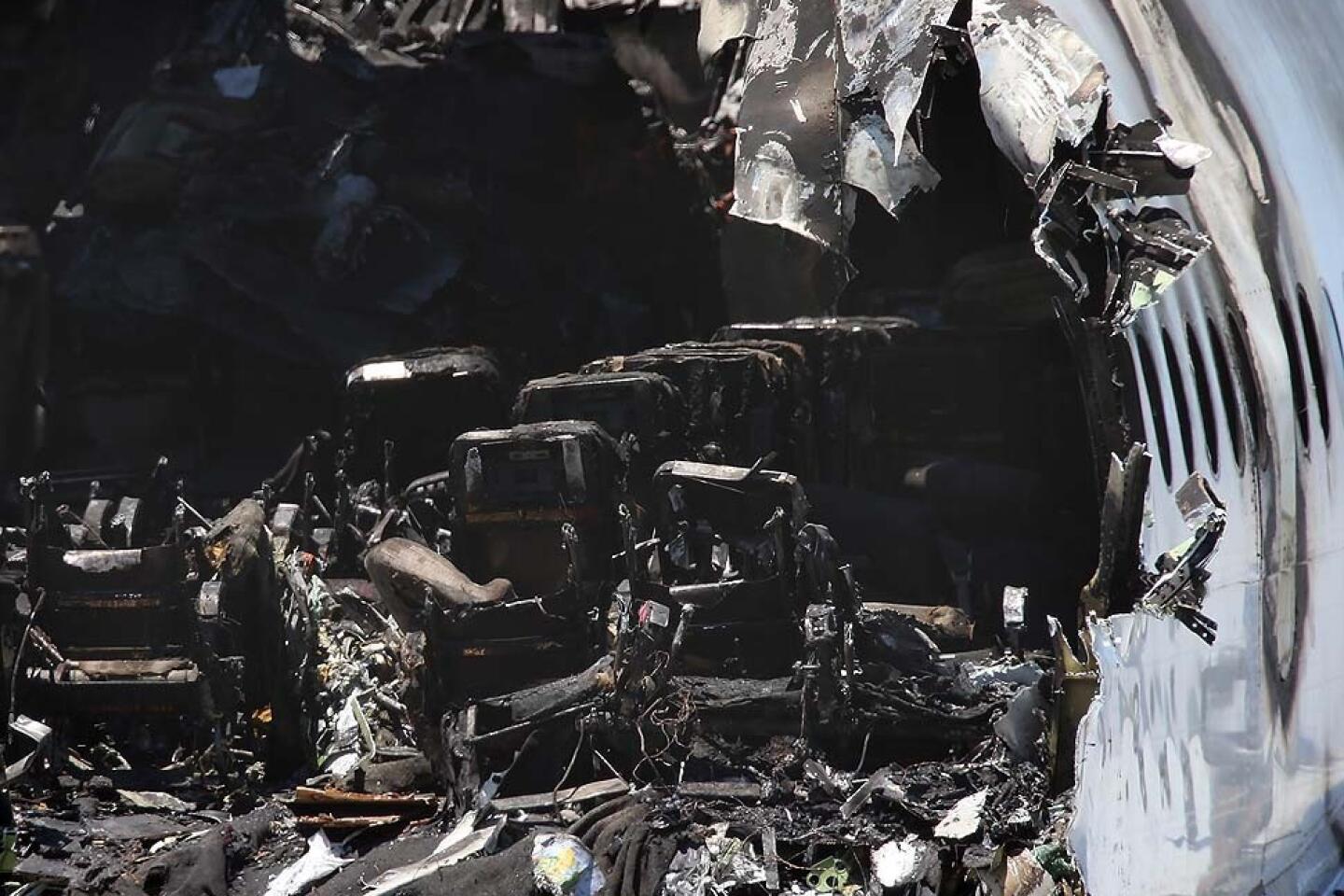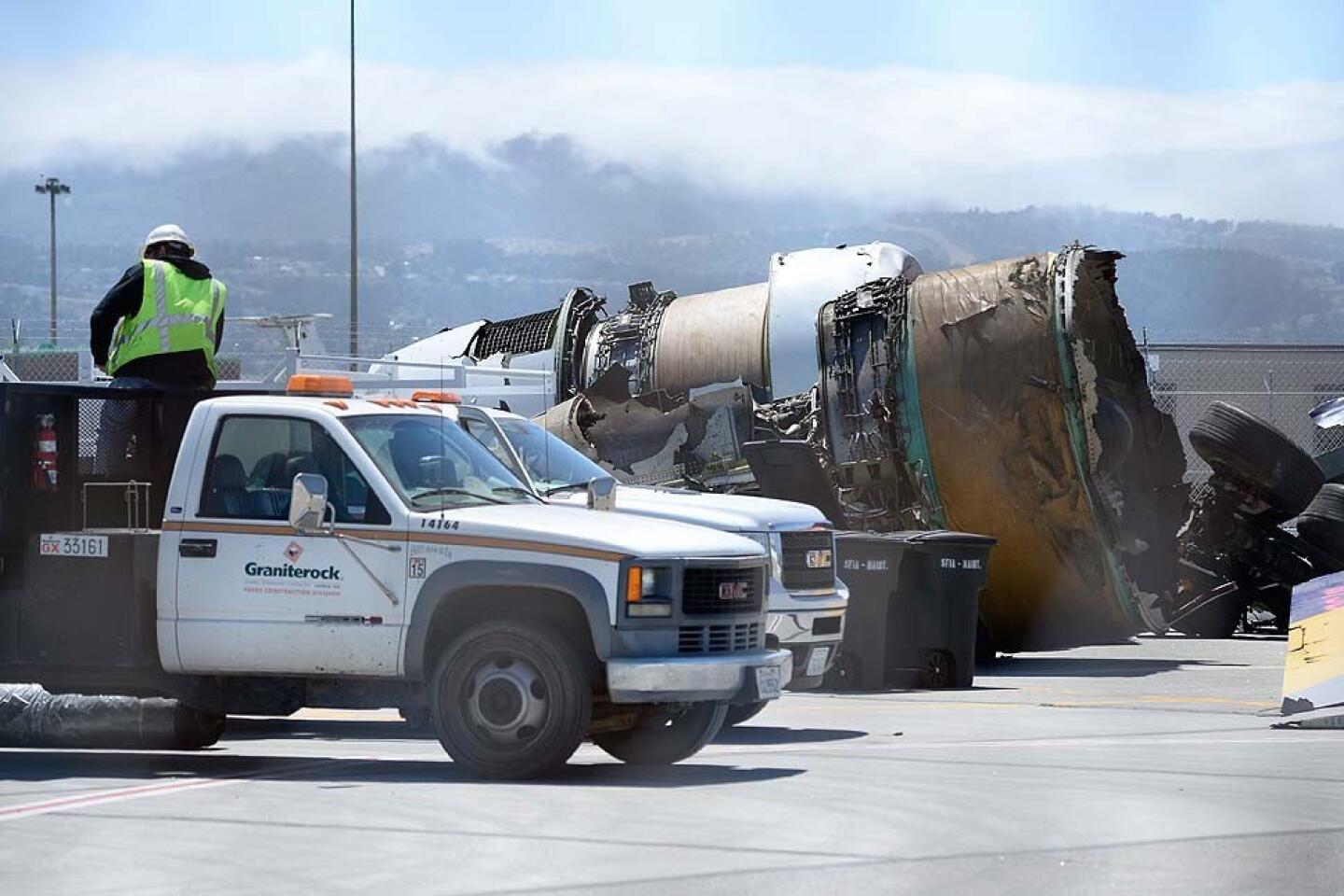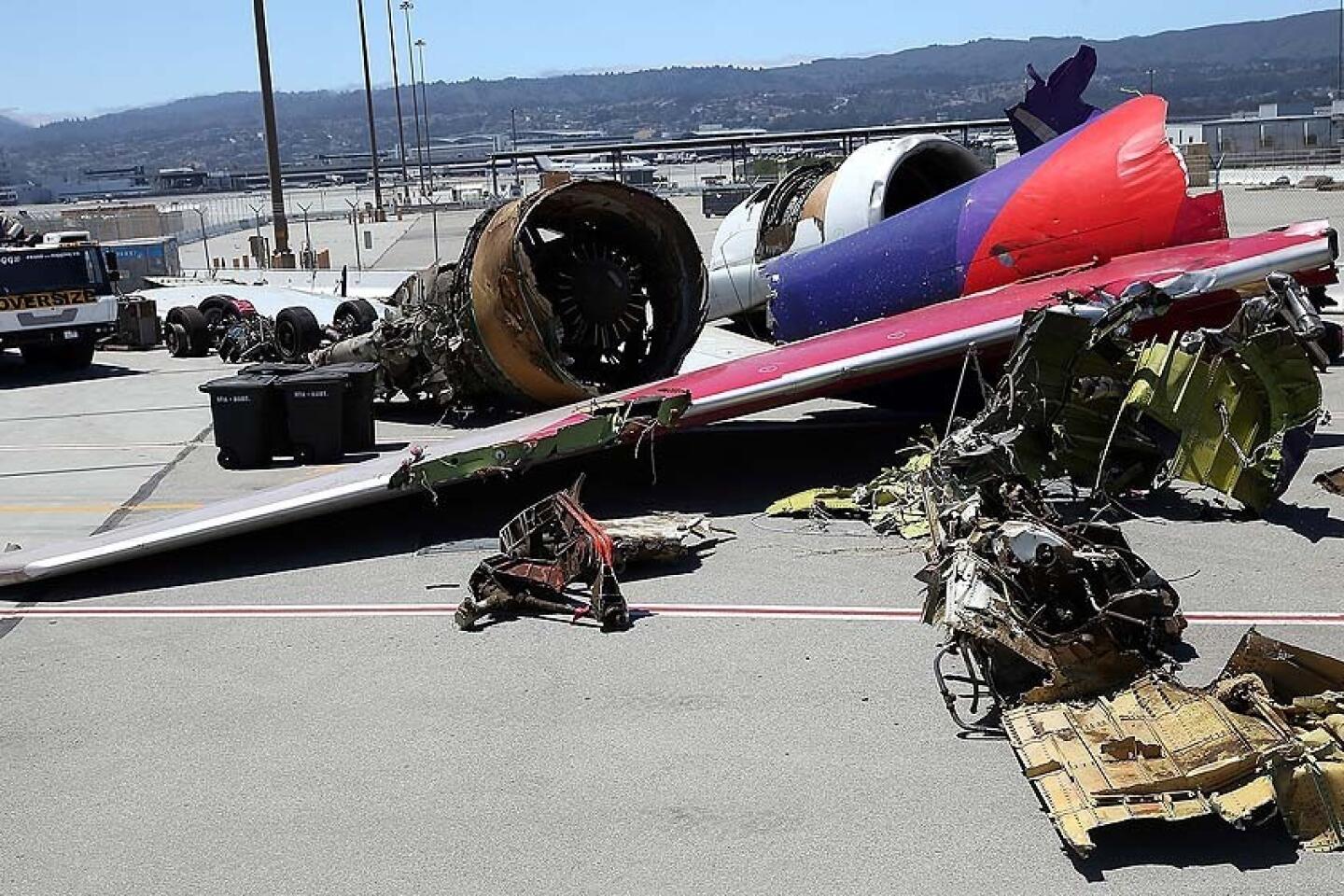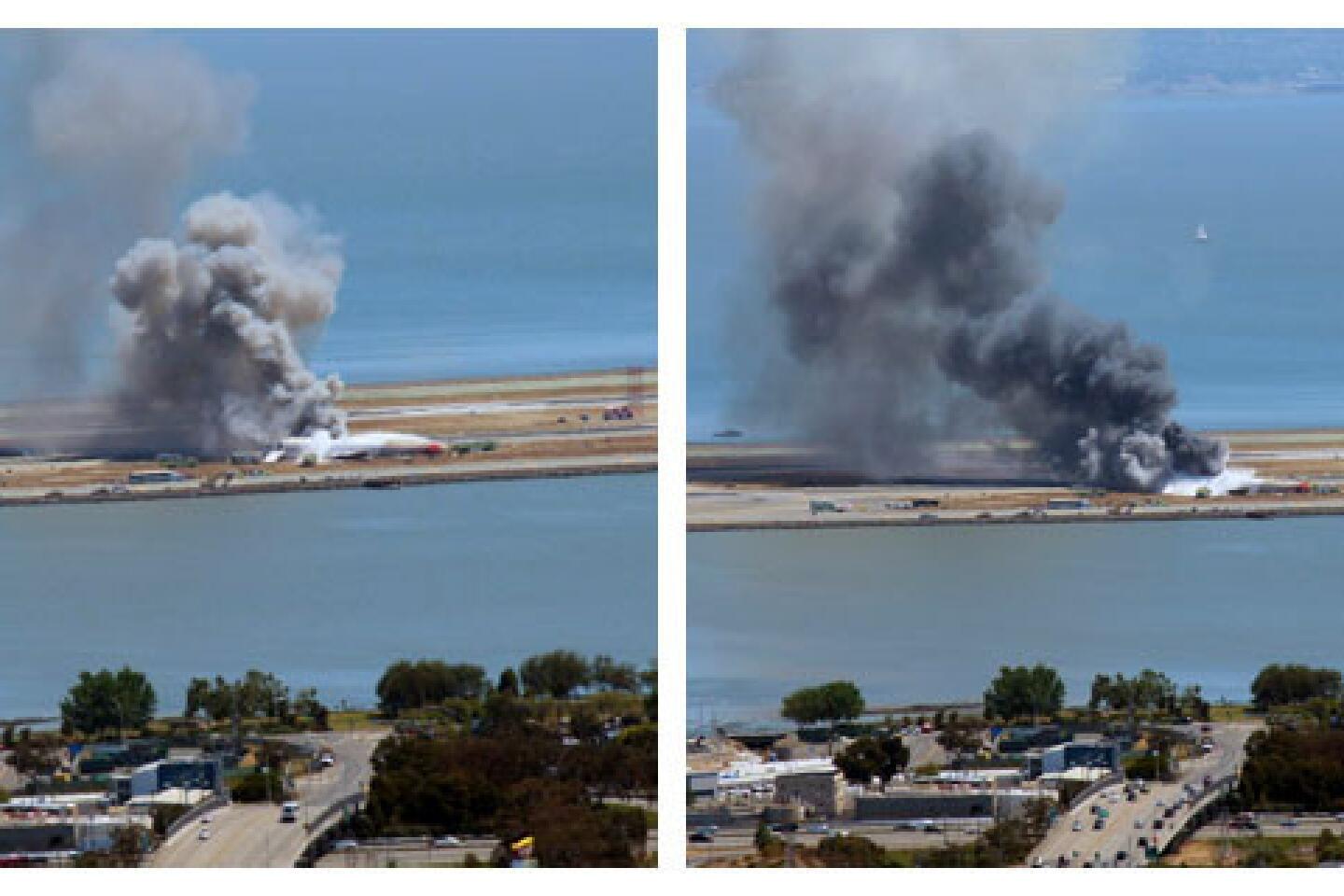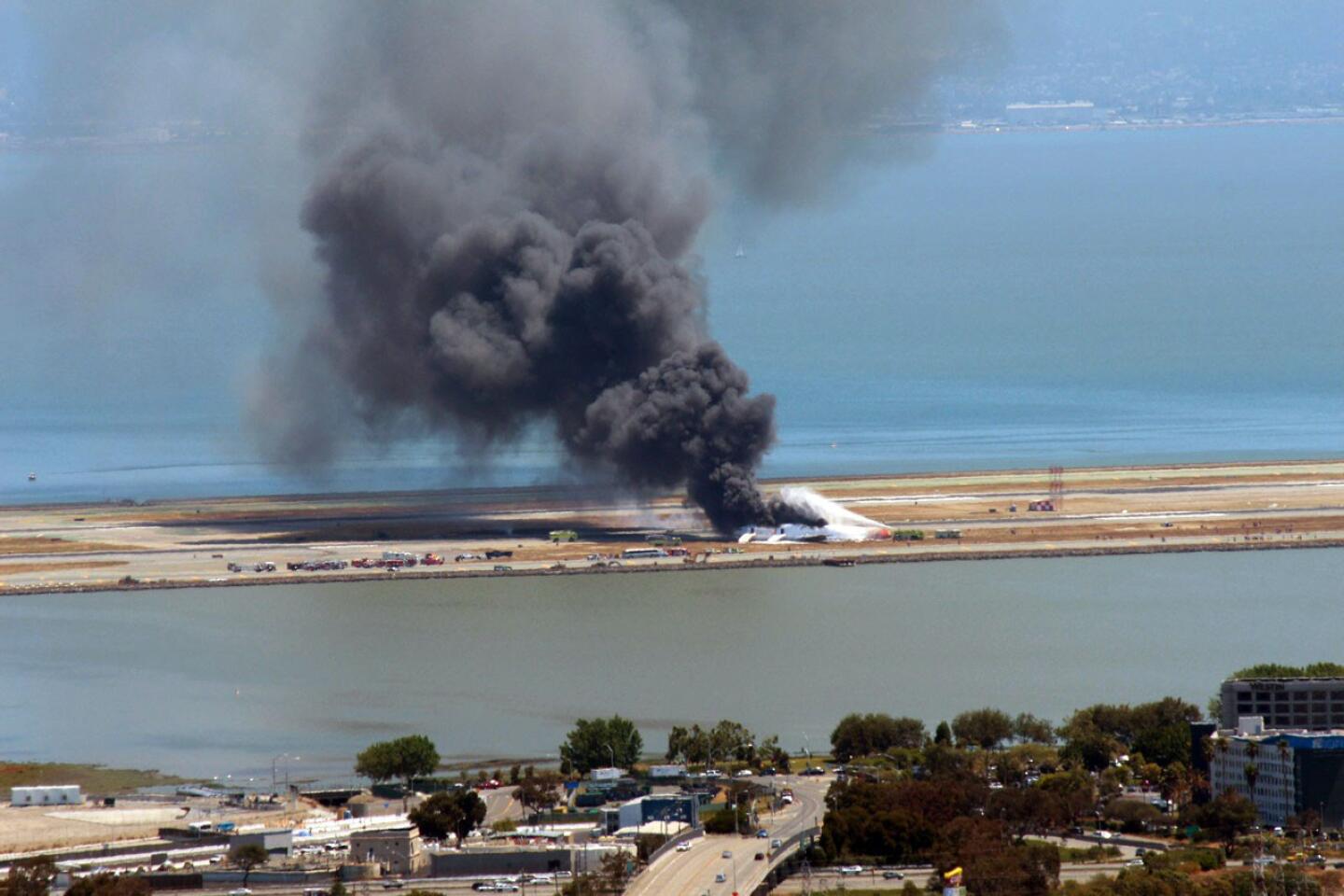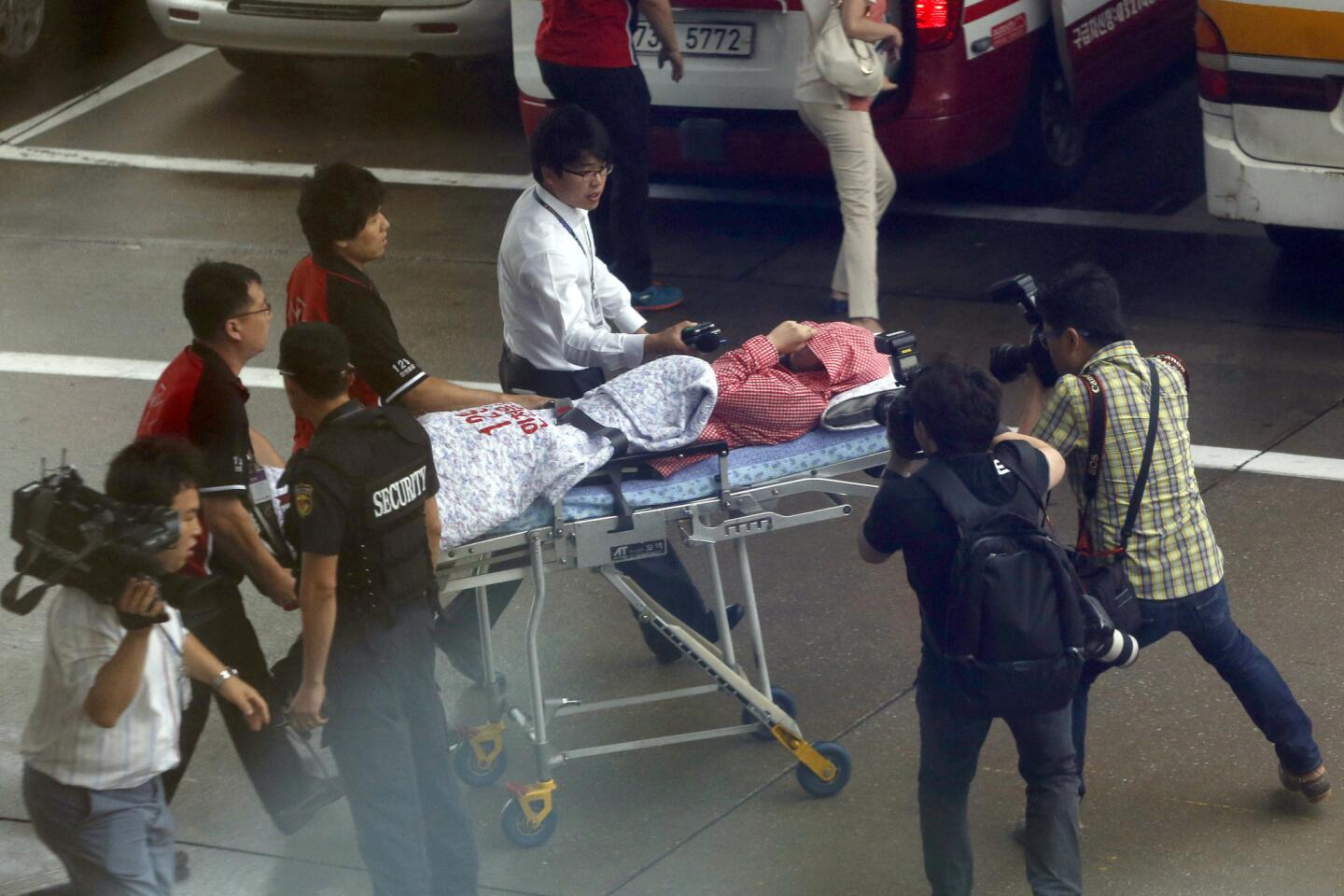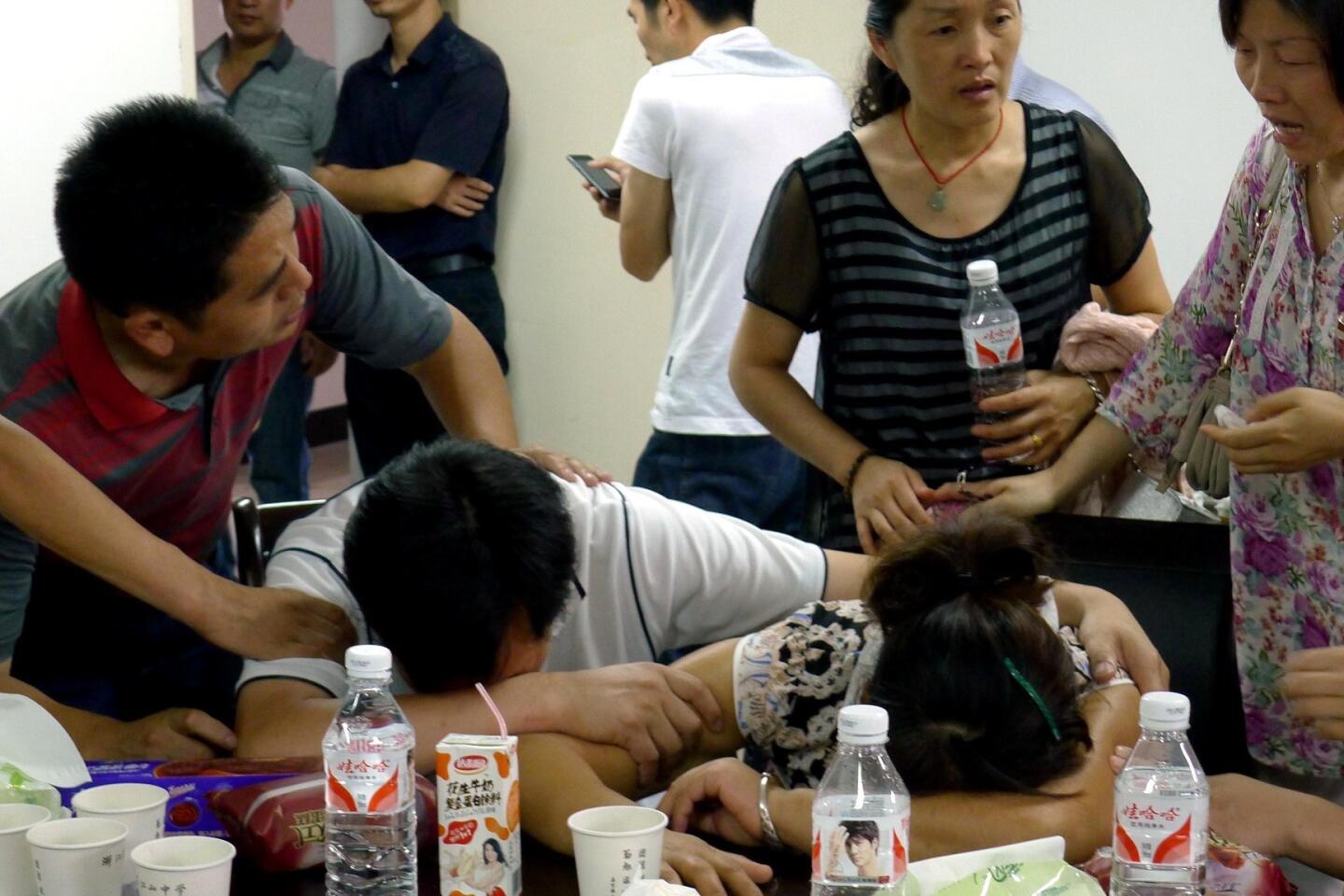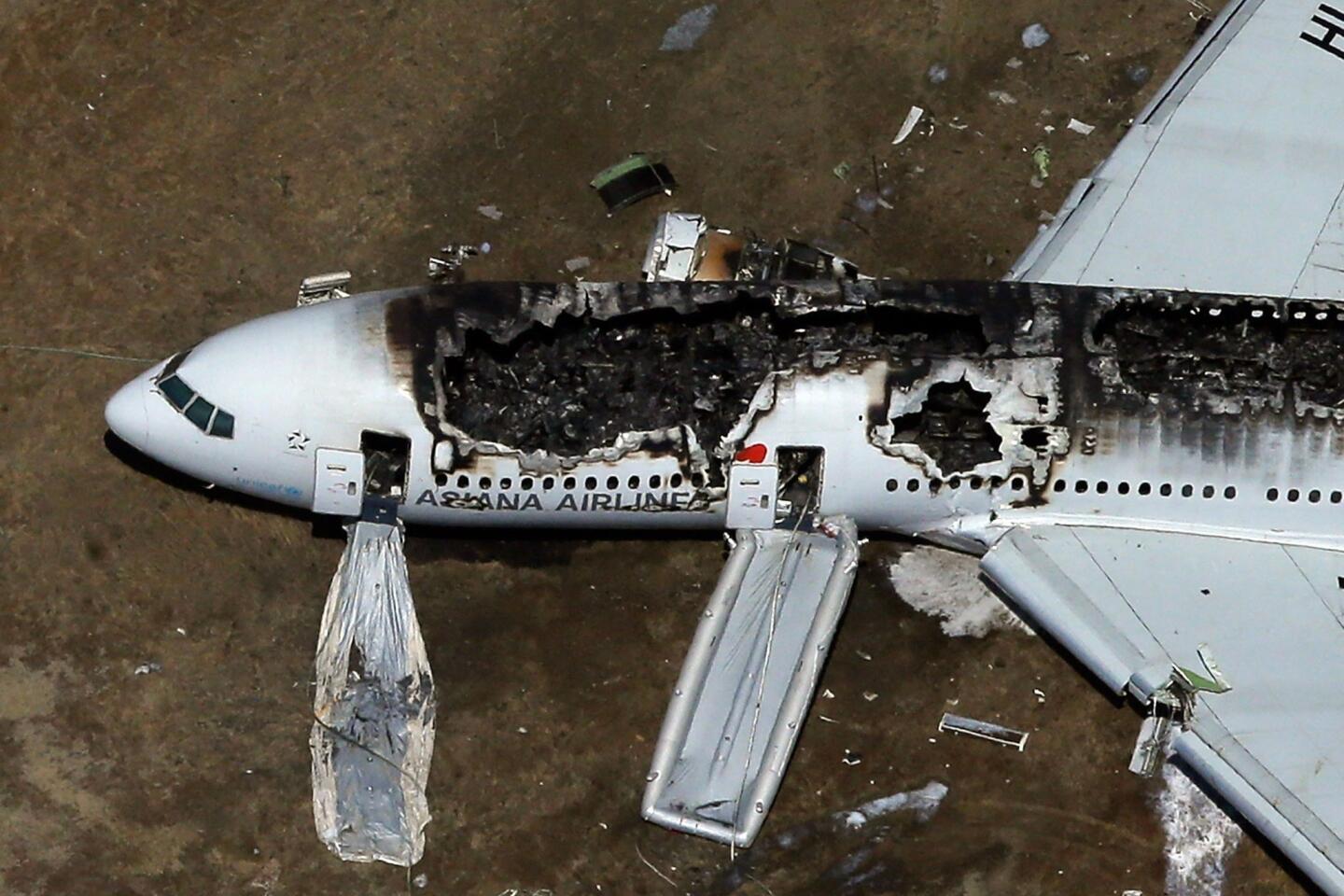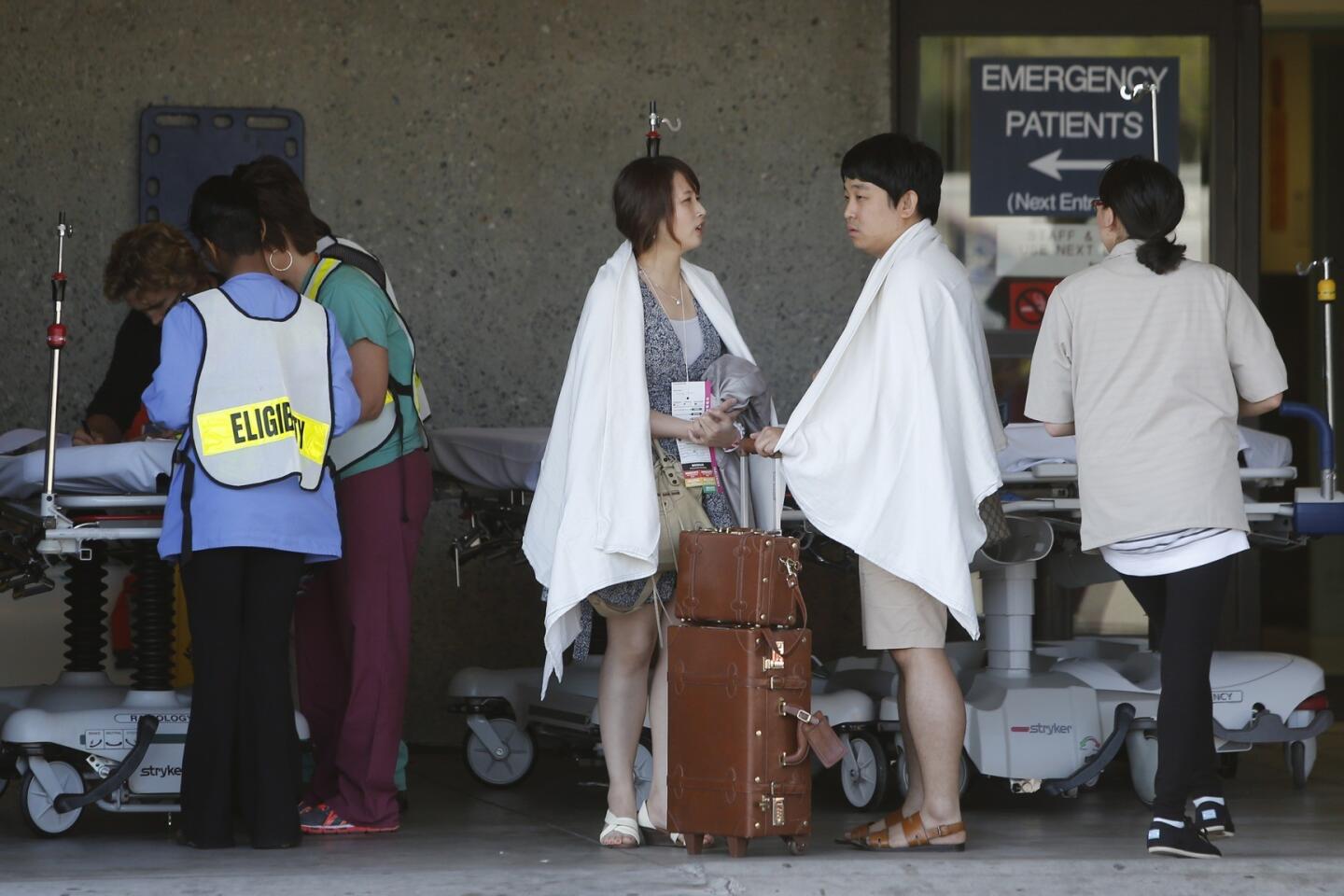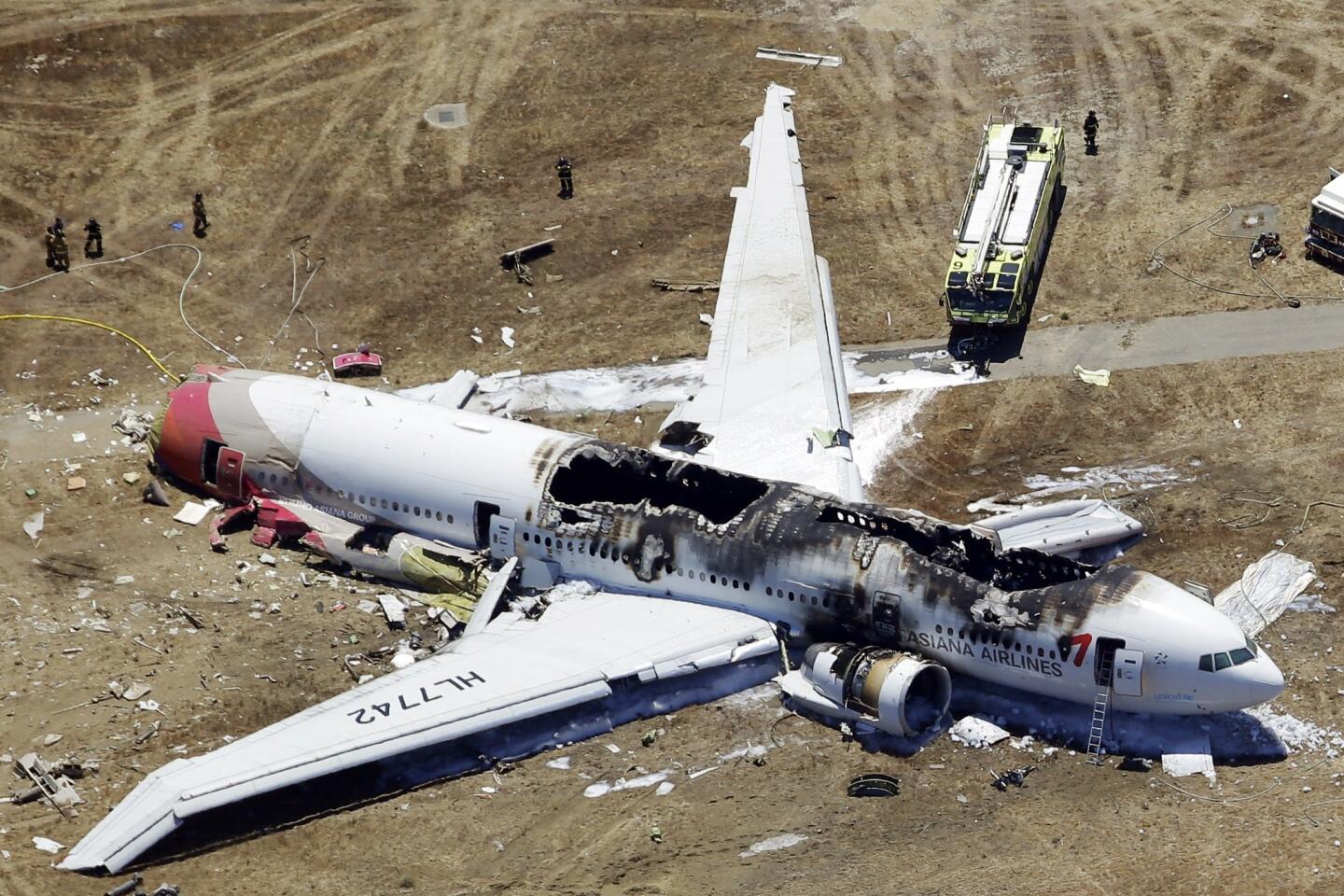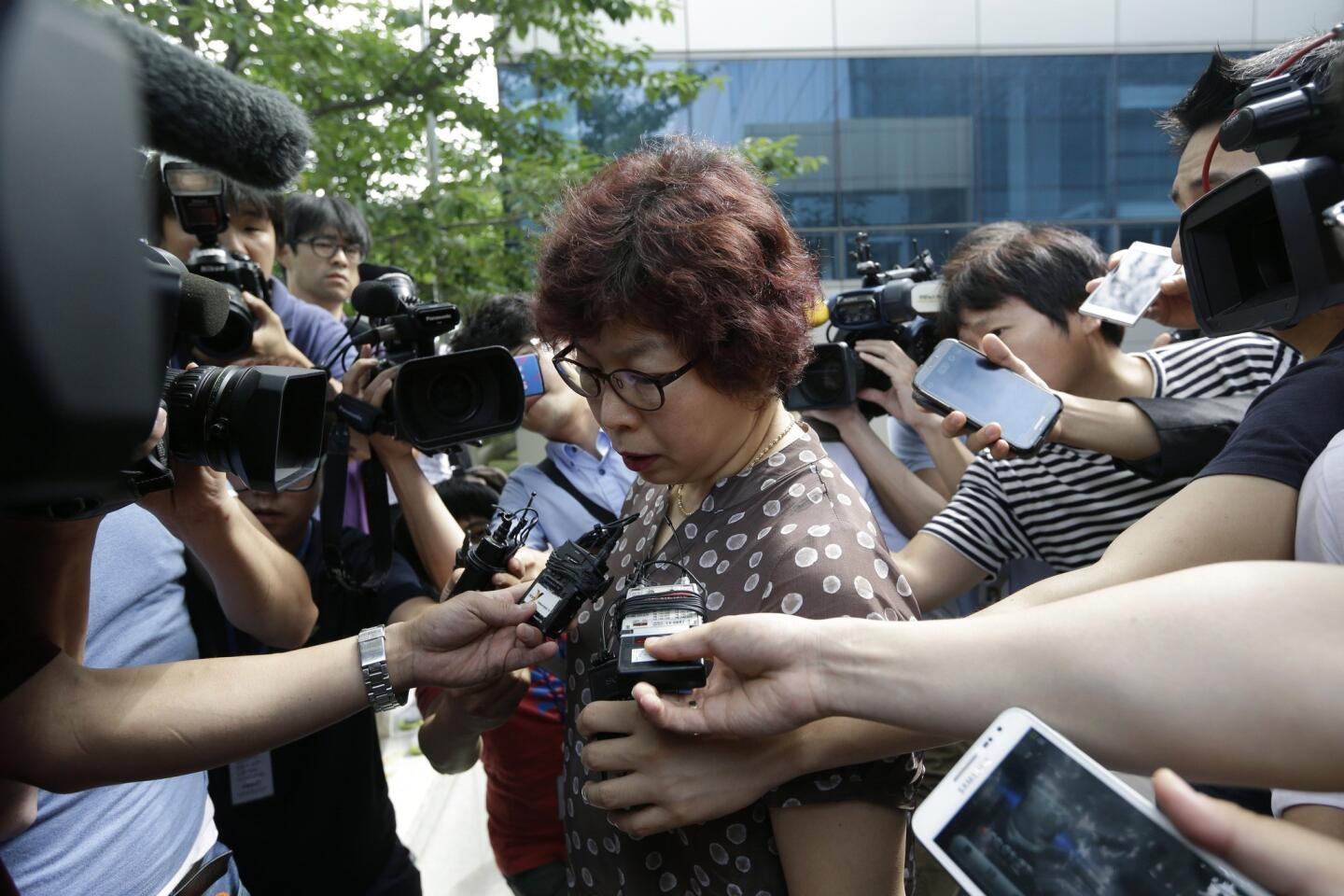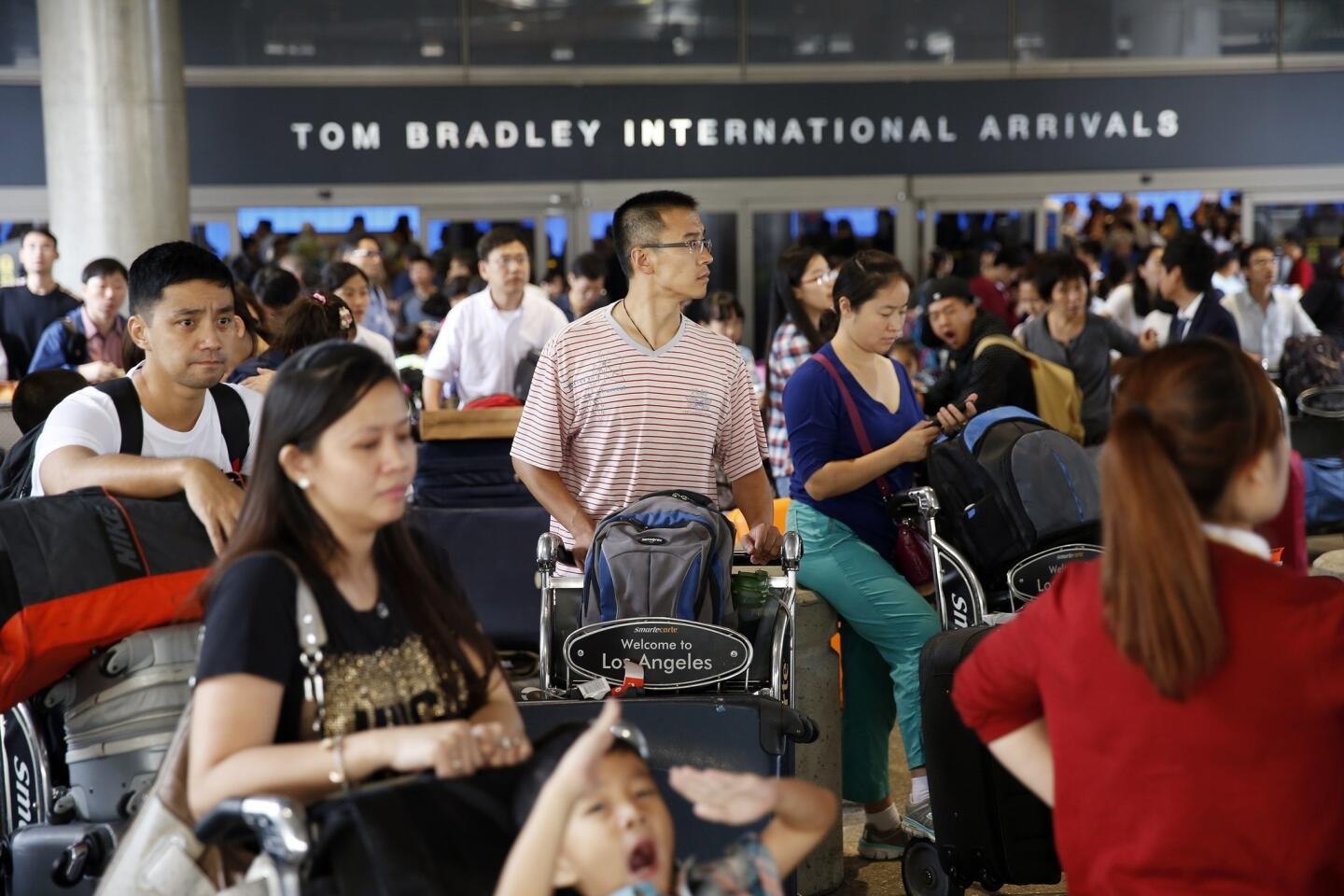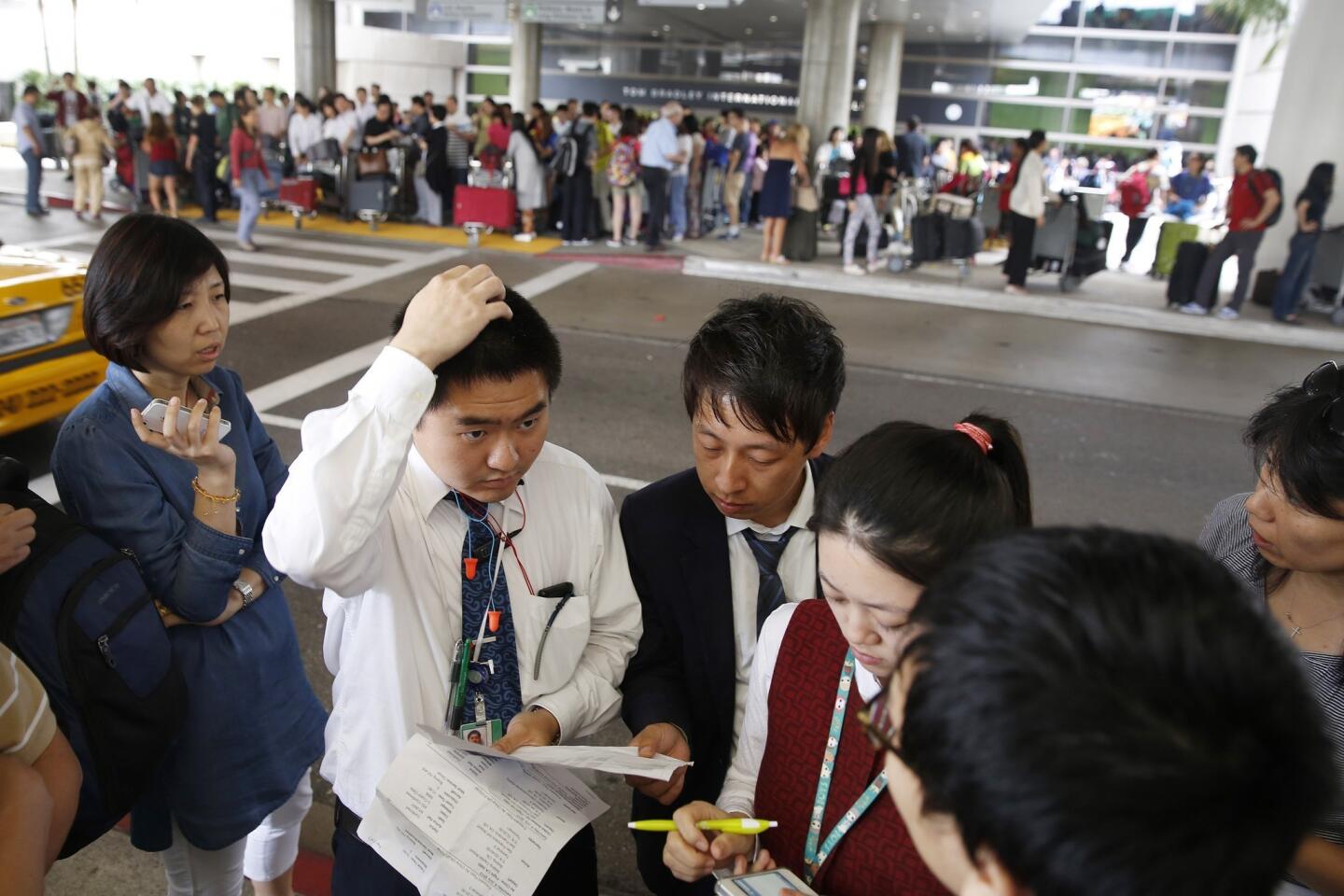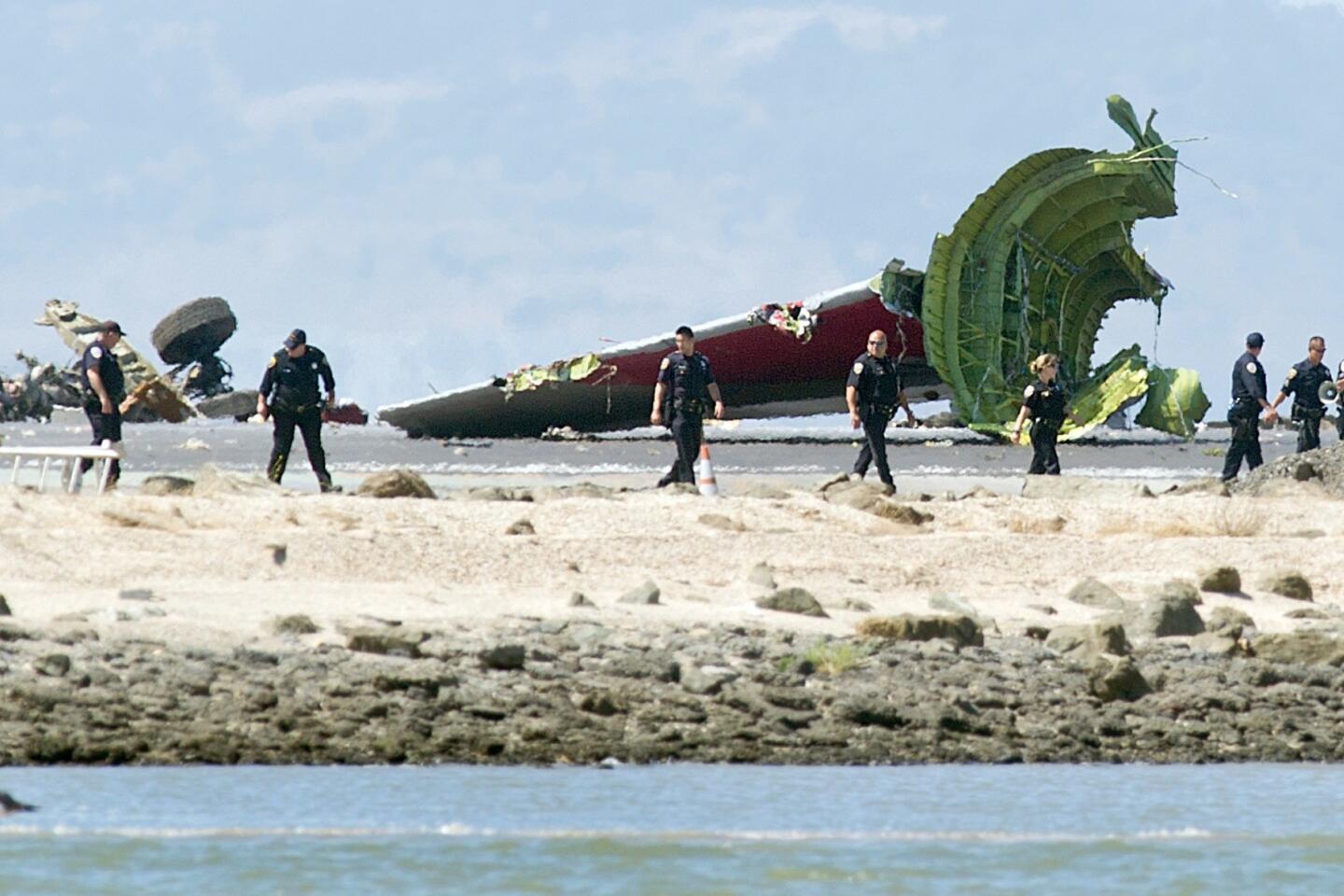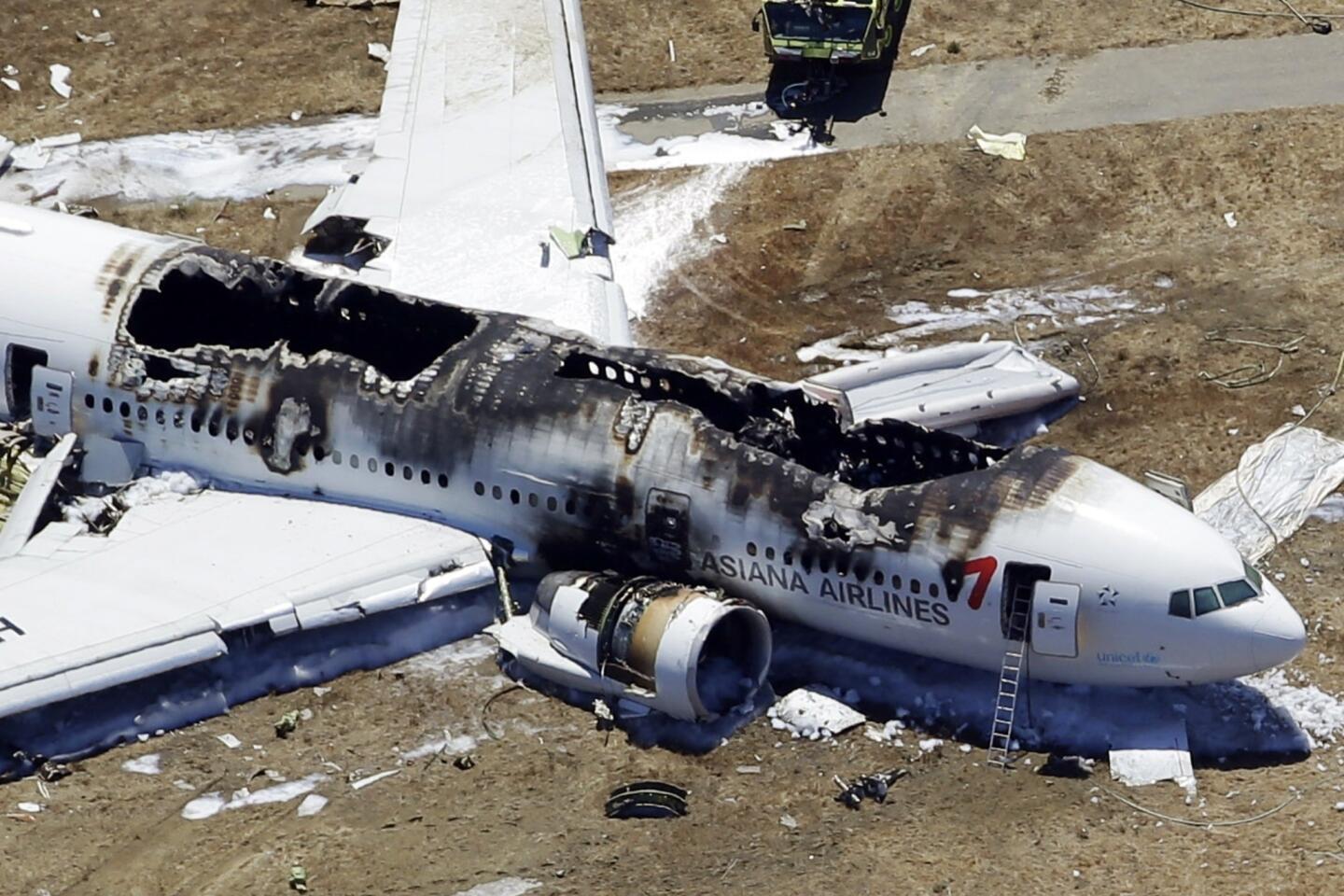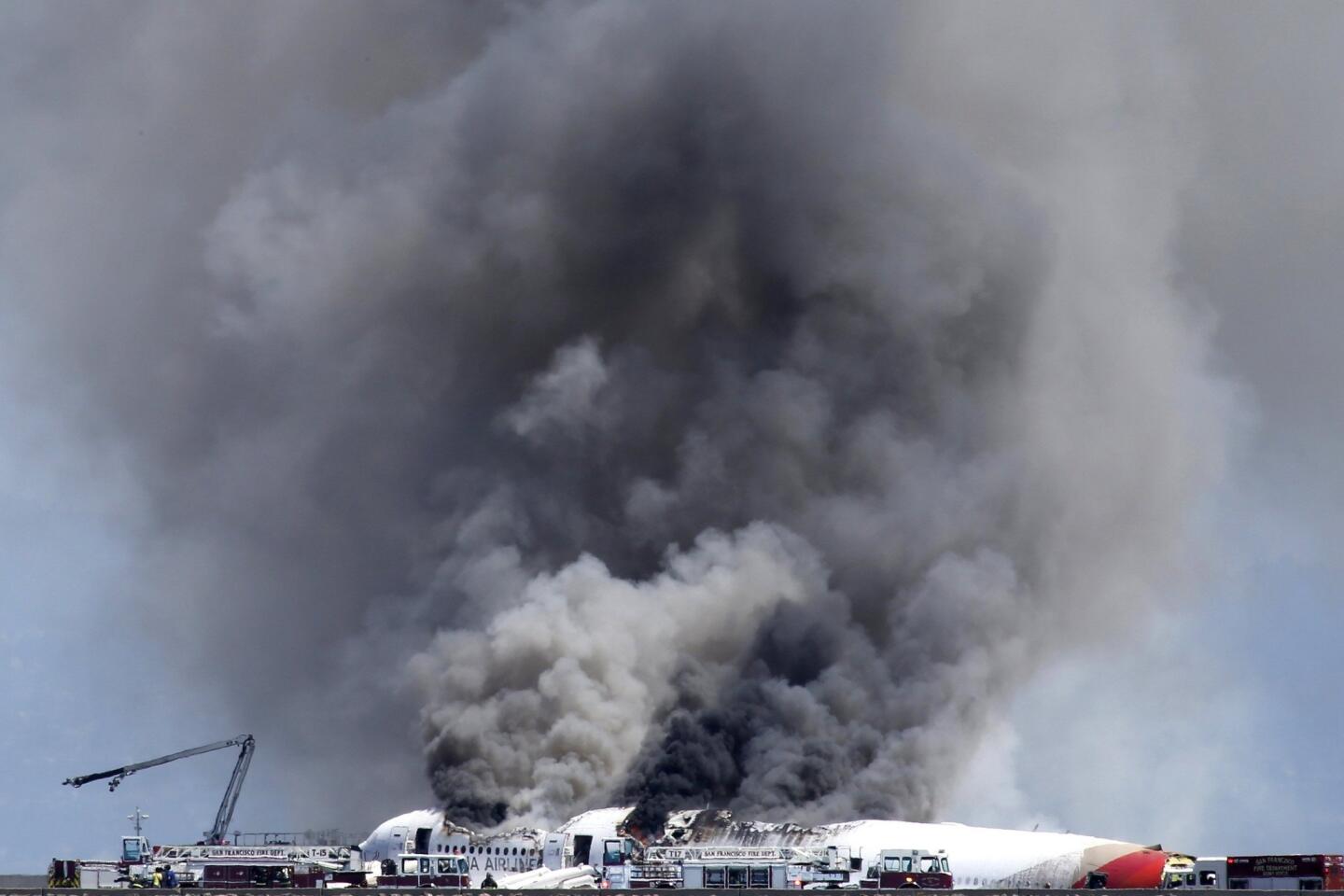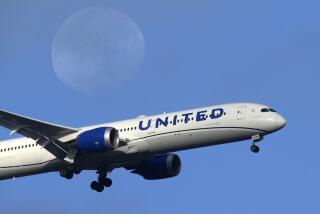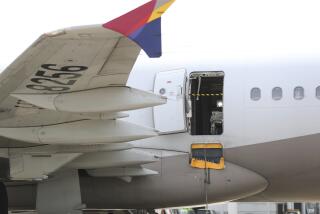L.A. Now Live: Latest developments on Asiana jet crash
The Asiana Airlines jetliner that crash-landed at San Francisco International Airport was flying far below its intended landing speed and on the verge of stalling before the aircraft clipped the sea wall and slammed into the runway, federal accident investigators said Sunday.
Join us at 9 a.m. as we discuss the latest on the crash investigation with Los Angeles Times reporters Laura Nelson and Victoria Kim.
The targeted landing speed for the Boeing 777-200ER is 137 knots, and the South Korean jetliner was “significantly” below that, said Deborah A.P. Hersman, chairwoman of the National Transportation Safety Board. Independent flight tracking data indicate that the wide-body’s airspeed might have dipped to as low as 85 knots in the moments leading up to the crash.
Hersman said there was a call in the cockpit to increase speed seven seconds before the plane’s tail struck the sea wall that separates the airport’s runway from the bay. According to onboard flight and voice recorders, the pilots received a warning four seconds before impact that the aircraft was approaching a stall — a speed so low it can no longer generate enough lift to stay aloft.
At 1.5 seconds before impact, there was a call for the plane to abort the landing and circle around, Hersman said. By then it was too late, as the jetliner crashed and broke apart, killing two passengers and injuring dozens of others. The plane was carrying 307 people.
Asked whether pilot error may have been a factor, Hersman said: “Everything is on table right now. Nothing has been ruled out.”
More to Read
Sign up for Essential California
The most important California stories and recommendations in your inbox every morning.
You may occasionally receive promotional content from the Los Angeles Times.
